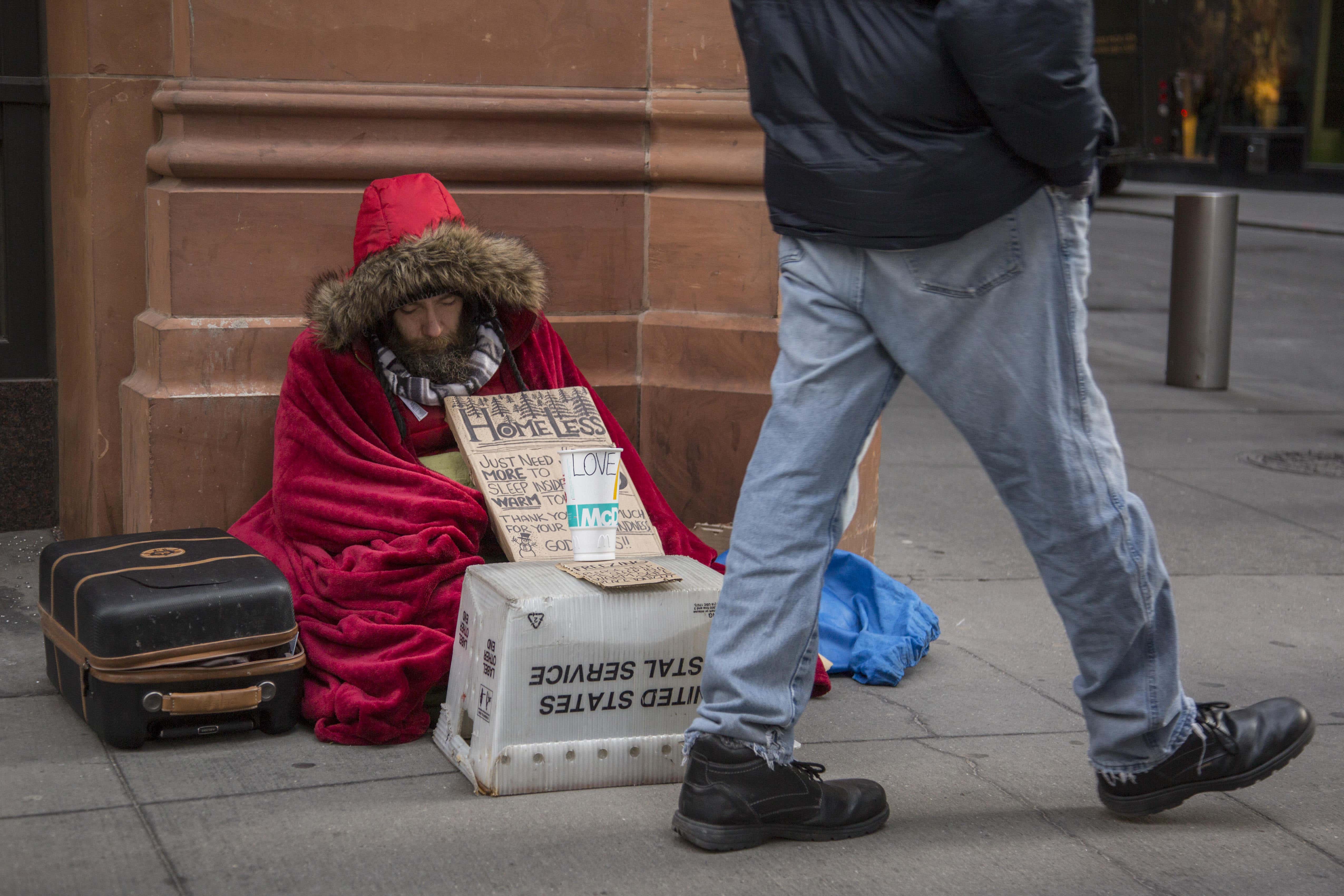What can I do to help homeless people in freezing conditions?
The harsh weather is a serious threat for anyone without shelter right now

It’s extremely cold right now – which means people who are sleeping rough are facing even bigger dangers than usual.
The Met Office predicted Saturday would bring a dry day to most areas with some sunny spells, although with a few showers along the coast and feeling cold with frost and fog patches overnight.
It said temperatures will drop to minus 4C in parts of rural south-west England on Saturday night and minus 6C in rural areas along the Welsh border in Shropshire and north Herefordshire on Sunday night.
The UKHSA has issued a yellow cold weather alert for the vulnerable and elderly from 9am on Saturday until noon on January 12 with temperatures likely to be a few degrees below average across much of the UK, especially overnight, with ice an issue on wet ground.
But, when money is tight, you may wonder what you can possibly do to help people on the streets. Here are some suggestions…Stop to say hello and check they are ok
“Homelessness can be an incredibly isolating experience,” says Matt Downie, chief executive of Crisis. “So, acknowledging people, being a friendly face and stopping to say hi and ask if they’re ok can go a long way.
Ask if there’s anything they need
If you’d like to help someone out by giving them something, “it’s always best to ask someone if they want your help first,” Downie adds. Ask what they might need or like.
“This could be a warm drink or some hot food to help warm them up,” says Downie. But check if they have any allergies, or even if they have a preference. They may have just eaten and have no way to keep food warm.
See what you have at home
“You could offer them some warm clothes such as gloves, hats and scarves or a blanket,” Downie suggests.
Make sure they are in decent condition and truly warm. There may even be some cheap options in charity shops that you could offer to those sleeping rough near you – that way you are doing two good deeds at once.
Check out Streetlink
Many people do not know that “if you are in England or Wales, you can refer people sleeping rough to Streetlink (streetlink.org.uk), an app and helpline that connects people rough sleeping with local support and services, including cold weather provision. If you are in Scotland, you can contact your local council,” says Downie.
This could be a vital lifeline for someone sleeping rough, and if they don’t have access to the internet, they may not be aware of able to access this service themselves. So by learning about Streetlink and telling your friends about it, you could end up helping someone get a warm bed for the night.
Be decisive if you are really concerned
“If you are worried that someone is in immediate danger due to the cold weather, please call 999,” Downie says frankly.
Sleeping rough kills, be it from exposure, pneumonia or influenza, and someone may be sicker than you think. Look out for signs of hypothermia such as shivering, memory loss, slurred speech, fumbling hands and drowsiness. It is better to be safe than sorry.
Ask your local council about SWEP
“SWEP stands for Severe Weather Emergency Protocol and provides emergency support for rough sleepers when the temperatures drop drastically. During SWEP, councils open extra beds in night shelters as well as other services,” says Alicia Walker, policy, research and campaigns manager at Centrepoint (centrepoint.org.uk).
Refer young people to day centres“Day centres offer practical help such as a hot meal and access to showers and laundry facilities,” says Walker. “You can find your nearest day centre by using Homeless Link’s directory [homeless.org.uk] or calling the Centrepoint Helpline on 0808 800 0661.”
Want to do more?Walker adds: “If you have some spare time, you might also be able to volunteer at a day shelter if they need an extra pair of hands.”
Bookmark popover
Removed from bookmarks